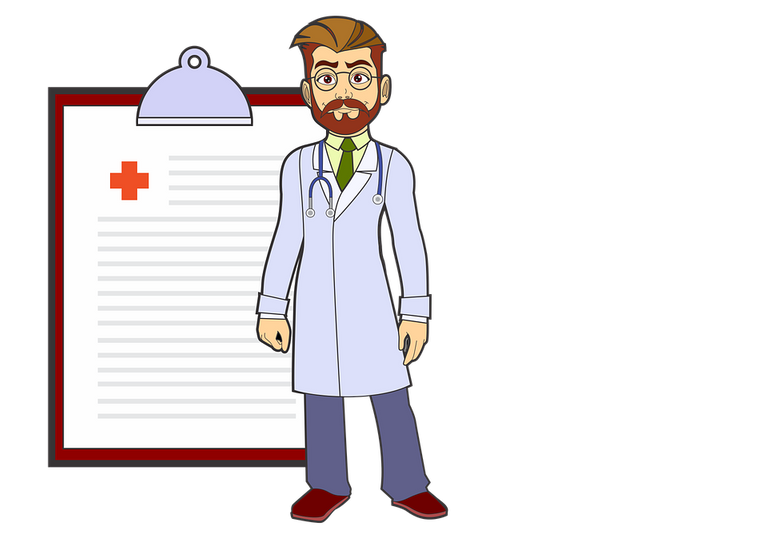At different levels, since ancient sages, priests, healers and shamans have been treating the sick because of the belief that illness is a manifestation of demonic influence performed by the intercession of god or supernatural beings or other human beings. Their motives in healing the sick may not be entirely for the sake of the sick because they benefit in the social order of the aid, in spite of the power and authority given to them in society.
When it is associated with the medical profession, we are assured that its social problems are rooted in humanism, compassion for the suffering of patients, and the desire to provide health care. Current practice and specialist physicians have a unique and very personal 'one-to-one' patient-patient relationship, involving the patient's full adherence, dependency, and trust in the authority, knowledge and skills of his physician. With that authority created the element of social obligation to serve with compassion to those who believe and depend on us.
But the dignity and status of the physician profession was not as high as we see it today. For example, in ancient India, only royal physicians had high status. The doctors of that day were regarded as not pure blood and had never been invited to ceremonies for the gods. Brahmin caste should not receive food from a doctor because it is considered unclean / dirty (Rao & Radhalaksmi, 1960). In the Roman Empire, doctors were heavy laborers, savages, foreigners, and treatment was considered a lowly job. In 18th-century England, surgeons and pharmacists were considered to be merchants and included a fringe class. Even at least in the 19th century, doctors in France were very poor and their status was also low (Starr, 1949).
However, with the development and advancement of medical science and the ability of physicians to influence the course of the disease radically, beginning in the late 19th century, slowly changed the medical status of a heavy worker / laborer into a profession and at the same time the power and dignity of the medical profession as well upward so far in the 20th century.
With the achievement of the status of the profession, everything that becomes the character of a profession is also obtained. Medicine has autonomy, controls all who want to enter this profession, sets competency standards through training including theory, not just skills like in artisans' work. The medical profession subsequently develops structural profession (associations, publications, medical schools that can be controlled) and aims to provide humanistic services to the public for their benefit.
Ethical principles have been a fundamental part since the early days and are related to the duties and responsibilities of a physician. It should be noted, however, that all statements on ethics can be professionally adapted to the medical world. And nothing concerns the humanistic aspect.
The practice pattern of physicians in the early eighteenth century was a 'single service charge' of a physician providing medical services and for that he was paid, in the form of money and in the form of agricultural products as still prevalent in developing countries in some poor areas and villages . This is a period of rural doctors or 'old-fashioned' doctors or family doctors who know the family well, go around the houses, and act as 'trustworthy friends and guides', in addition to caring for the sick in the family.
The development of large cities and hospitals in the 18th and 19th centuries left the village doctors slowly disappearing and more and more doctors settled in urban areas to practice. The disappearance of rural doctors or family doctors started the emergence of 'dehumanizing services' in hospitals.
In the last decade of the 20th century, patterns of practice in industrialized countries changed completely with market-oriented economies. From independent practice, now most physicians practice in groups under formal approval of the use of medical facilities and equipment together and revenues are distributed according to preliminary agreements involving health personnel.
Businesses see a huge market in the health field, the result being the growing commercialization of medical services and the growing complex medical industry. Medicine is no longer a folk industry like when doctors practice self-reliance. These health managers - economists and CEOs (executives), are increasingly deciding the type of service practices and types of organizations over doctors. Drug prices soar and the use of sophisticated medical equipment has consequences with high payouts. It has been said, the more doctors rely on technology alone, the more they lose their sense of humanity, which leads to 'dehumanizing services'. This is coupled with the fear of malpractice demands, doctors pay insurance for him, which certainly affects the patient so that the cost of health services higher.
These changes color the attitudes and behavior of the profession that emphasizes the financial and technological aspects of therapy and undermines the doctor's altruistic and humanistic vocation.

[source(https://pixabay.com/en/brain-inflammation-stroke-medical-3168269/)
Again, according to Professor Tu, a doctor in Myanmar studied a medical genre film, entitled "Patch Adam". He is interested in the criticism of the player, who plays the role of dr. Hunter Adam: "You do not even look at patients when you talk to them" and as he talks against the Medical Agency: "Death is not an enemy, brethren, but an omission. You handle the disease, the result is lost or won. You handle the patient, you will win no matter what the end result ".
This situation is already visible in our country. How many doctors actually treat their patients with compassion? I'm not suggesting that no doctor has compassion because I know some doctors who actually deal with their patients with a heart.
But, such a scene is very rare we feel. Many doctors serve their patients with smiles, friendly, courteous and full of manners, but what we are talking about in terms of humanism is that doctors serve their patients by looking into the feelings of their patients. Appeared to understand the pain of his patients and not merely hunt down what is the diagnosis for proper treatment and this patient immediately withdrew from his busy life.
You are mistaken if you think the patient does not need a touch
humanism, and it is appropriate to suspect that they will be more comfortable with doctors who look at them during anamnesis and show acceptance and understanding of all complaints. It's not hard to do. Just put yourself in their shoes. Then the value, which situation you prefer, is handled by a cold-faced doctor busy researching your illness or by a doctor who shows a feeling of affection for each of your complaints.
thanks for reading



